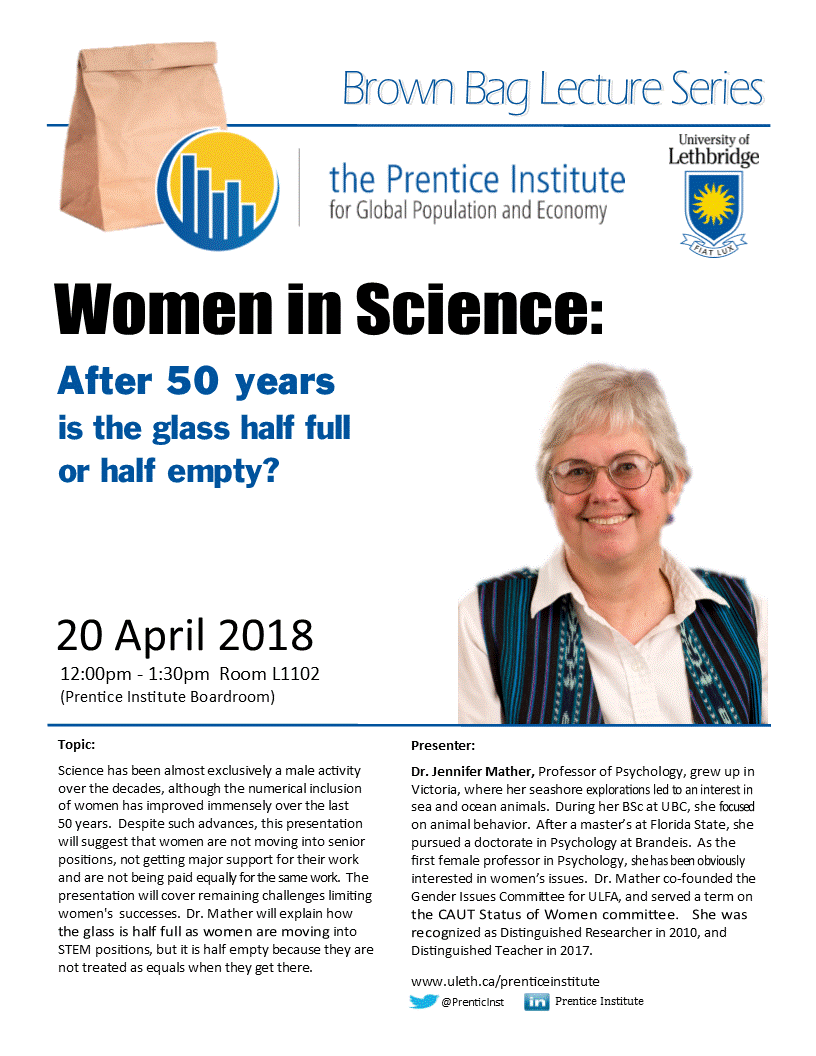This event is from the archives of The Notice Board. The event has already taken place and the information contained in this post may no longer be relevant or accurate.

Abstract:
Science has been almost exclusively a male activity over the decades, although the numerical inclusion of women had improved immensely over the last 50 years. Despite such advances, this presentation will suggest that women are not moving into senior positions, not getting major support for their work and are not being paid equally for the same work. It will argue that this is not a feature of science per se but of the sexism of western society. I will show how females are steered into other activities or into support positions, how their competence is underestimated and they are presumed to take the major share of child care, which limits their success. The glass is half full as women are moving into STEM positions, but it is half empty because they are not treated as equals when they get there.
Bio:
Dr. Jennifer Mather, Professor of Psychology, grew up in Victoria, where her seashore explorations led to an interest in sea and ocean animals. During her BSc at UBC, she focused on animal behavior and found the octopuses to be especially interesting mollusks. After a master’s at Florida State, she pursued a doctorate in Psychology at Brandeis. There was an obvious lack of women in sciences 50 years ago. As the first female professor in Psychology, she has been obviously interested in women’s issues. She co-founded the Gender Issues Committee for ULFA, and served a term on the CAUT Status of Women committee. She was recognized as Distinguished Researcher in 2010, and Distinguished Teacher in 2017.
Contact:
Jeff Bingley | j.bingley@uleth.ca